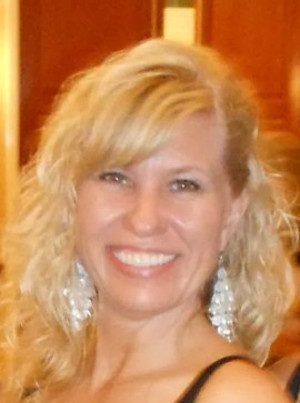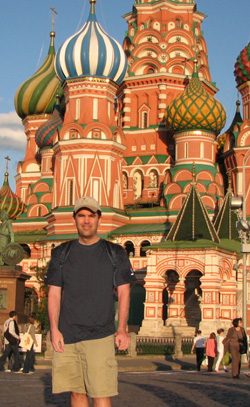Tuesday Takeover: 10 Lessons Writing Zombie Books Taught Me by Kate L. Mary
I’ve written seven zombie books, one book of short stories to go along with it, and a post-apocalyptic book that deals with the aftermath of an alien invasion, and through it all I’ve learned several valuable lessons. Not just about the world we live in, but about myself and people in general. I think, on some small scale, it will actually give me a little bit of an edge when the inevitable zombie apocalypse hits. And since I’m a nice person, I wanted to share those lessons with everyone else.
1. Electricity Won’t Last As Long As You Think
Did you know that power plants need constant monitoring? I didn’t. Sure, I knew someone was probably always there to keep an eye on things, just in case, but I didn’t realize how vital it was to have a living, human being there at all times. Which means that when a killer zombie virus sweeps the country and takes out most of the population, it won’t be long before the power will go out. In some cases, it could take as little as 2-4 hours. Yes, there are scenarios where the power won’t shut off quite as fast, but the apocalyptic novels we read that have survivors using electricity for weeks after the human race has disappeared are totally far-fetched. So be prepared and stock up on batteries, flashlights, lanterns, and matches!
2. Fuel Expires
I know what you’re thinking: What?! No!!!!
I mean, it makes total sense now that I think about it, but it wasn’t something I ever really sat down and thought about. Gas isn’t food, so why would it go bad? It does, though. The shelf life depends on how it’s stored and the kind of fuel it is, but it won’t last forever. So when the zombies pop up, be sure to use your gas while it’s still good! Saving it for a rainy day may end up being a waste.
3. People Are Bad
Sounds obvious, and a little cynical, but let me explain what I mean using my kids as an example. When I tell my son he can’t have a cookie, the only thing stopping him from getting one anyway is the threat of getting caught and having to sit in time out. Adults are no different, really. Many people have desires they keep hidden because they know it will get them sent to prison, or ostracized by family and friends, but during the apocalypse there won’t be anyone to slap them on the hand as they reach into the cookie jar. The world will be their cookie jar, which means they’ll do whatever they want.
Of course I’ve always known this about mankind, but until I wrote a book that left men to their own devices, I hadn’t really allowed myself to think about just how dark things could get. Now I have, and I realize that when the end comes, there are very few people you are really going to be able to trust.
4. Cell Phones Won’t Work
That goes for the Internet and email too.
This I also knew, but the affect of it hit hard as I was researching and trying to move my characters into a place where they’d adjusted to a world with no technology. I know that sometimes in zombie novels characters will email or text each other from across the country, but this just isn’t a realistic scenario. With most of the population gone there will be no one left to keep tabs on the cellular stations, and no electricity to keep those stations going on their own. Meaning your phone will be useless.
5. Aerosol Cans And Propane Tanks Can Save Your Life
We all know aerosol cans are pressurized and usually hold flammable liquid, and propane tanks have big warning labels on them telling us the same thing. But it never occurred to me how useful these common, household items might come in handy if you’re in a pinch.
Pretend someone you love is stuck somewhere, surrounded by zombies, and the only way you’ll be able to save them is by drawing the dead away? Well, why not grab a few aerosol cans and a propane tank, and start a fire in a house down the street. When they explode, it could be just enough to draw the zombies away, giving your group a chance to escape.
6. Alcohol Has A Million Uses
When you’re loading up on supplies during the apocalypse, don’t forget to grab plenty of alcohol, 70 proof or higher. Not only can it alleviate boredom—although getting drunk can be risky when you never know what’s lurking in the shadows—it can be used to sterilize, sooth itching from bug bites and poison ivy, start fires, and dozens of more uses.
7. Car Alarms Are Perfect For Distracting Zombies
The best way to distract zombies is to create noise somewhere else, right? How about banging into the sides of a few cars so you can set off an alarm? The annoyingly shrill whine of a car alarm is guaranteed to keep the rotting monsters distracted, giving you the chance to escape.
8. Always Carry A Pack Of Gum And Some Batteries
Did you know you could start a fire with a gum wrapper—the foil kind—and a battery? Look it up on YouTube, because it’s real! Plus that gum will help keep your breath fresh when you’re on the run. Who knows how often you’ll be able to brush and floss during the apocalypse?
9. People Under Thirty Are Screwed
It sounds mean, but it’s true. They’re the generation who don’t know how to use an atlas or find a book in the library. Everything they’ve ever needed has fit in the palm of their hands, and any question they ever have is answered with a Google search. For them, the disappearance of technology will be even more devastating than the virus that wiped it all out.
10. The United States Will Cope Better Than The Rest of The World
We love our processed food, don’t we? It’s made us obese, shortened our lifespan, and threatened the lives of our children. But it will save us when the apocalypse hits. When all the fresh food in other countries has gone bad, we will literally have warehouses full of boxed, canned, processed, and dehydrated food to keep us going!
So, what do you think? Am I ready to survive the apocalypse? Are you?
———————————————————————————–






